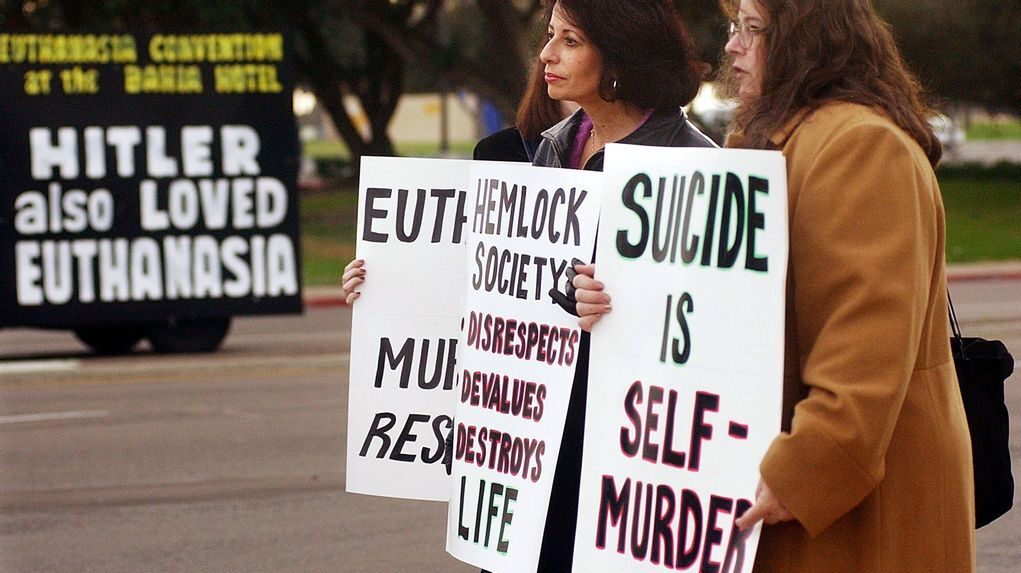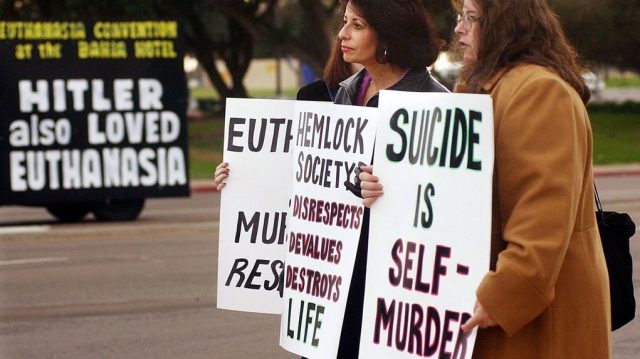
The euthanasia debate encompasses moral, religious and public health issues. Only seven countries in the world have approved active euthanasia: the Netherlands, Belgium, Luxembourg, Colombia, Canada, Spain, and New Zealand. Some states of Australia have legalized it, too.
Colombia is the first and, so far, the only Latin American country to practice euthanasia legally. The coffee country, where 93 percent of the population is Roman Catholic or Protestant Christian, legalized euthanasia through its Constitutional Court in 2014. Since then, 157 people have received a lethal injection.
By October 2021, 72 percent of Colombians approved the right to euthanasia. However, the debate has been rekindled as a result of Martha Sepúlveda’s case, which has gained international relevance.
A 51-year-old woman originally from Medellín, Sepúlveda was diagnosed in 2018 with amyotrophic lateral sclerosis (ALS), a progressive neurological disease in which nerve cells deteriorate and stop sending messages to muscles, reducing organ function. There is no known cure for the disease, and people often die 3 to 5 years after receiving their diagnosis.
Based on a July Constitutional Court decision, which extended the right to euthanasia to people who suffer intense physical or mental pain due to injures or diseases, Sepúlveda and her family presented her case to the health authorities. The procedure was approved, making Sepúlveda the first person without a terminal illness authorized to receive euthanasia in Colombia.
The procedure was scheduled for Sunday, Oct. 10, at 7:00 a.m. But the medical center in charge canceled it less than 36 hours before it was scheduled.
A week earlier, on Oct. 3, the Colombian newscast Noticias Caracol reported on Martha Sepúlveda’s last days. Besides recounting her routine as an ALS patient, the story focused on how Sepúlveda, a believer, lived with the decision to end her life.
The story became a central topic of the Colombian conversation, and the Catholic Church, through the Episcopal Conference of Colombia, urged Sepúlveda to reverse her decision.
“Martha, I encourage you to reflect on your decision calmly. … If circumstances allow, [try to] distance yourself from the harassment of the media that have not hesitated to use your pain and that of your family to advertise euthanasia, in a country deeply marked by violence,” Monsignor Antonio Ceballos Escobar said in the statement.
The Catholic Church strongly opposes euthanasia because it considers it contrary to its position on human dignity. The Vatican published a document in 2020 reaffirming that it considers euthanasia an act of homicide, where people carry out a crime against life and take “the place of God” when deciding the moment of death. On the other hand, Catholics do believe in the power of medical professionals to care for and accompany the sick.
The televised report alerted the committee that had approved the case: the patient seemed to be “more functional than what she herself and her relatives reported” in the consultations carried out during the request process. After a new neurological examination on Oct. 6, the Colombian Institute of Pain, Incodol — the center in charge of performing Sepúlveda’s euthanasia — announced the procedure’s cancellation on the night of Oct. 8.
The cancellation became a national scandal. “In the city of Medellín, Colombia, [Incodol] decided to cancel Mrs. Martha Lidia Sepúlveda’s assisted death. Her case went viral after being featured in a television news story,” said journalist Mónica Garza on Twitter.
En la ciudad de Medellín, Colombia, se tomó la desición de cancelar la muerte asistida de la sra. Martha Lidia Sepúlveda, cuyo caso se viralizó luego de haberse exhibido en un reportaje de televisión. pic.twitter.com/ht2m9vAcNF
— Monica Garza (@monicagarzag) October 9, 2021
“The Ministry of Health later said that the Constitutional Court has not notified it of the July decision. So, its legal effects are not yet in force,” Mariano Bustillo, a Colombian constitutional attorney, told Zenger.
“That is false. Although [it is true that] the Constitutional Court has not directly notified the affected entities, it still made its decision public through a statement and, therefore, the sentence became effective the day after it was voted,” he said.
“Despite the influence of the Catholic Church, which publicly urged Ms. Sepúlveda to recant, the majority of Colombian society approves of … euthanasia. Perhaps what had such an impact in Mrs. Sepúlveda’s case was the television story where she spoke so openly about her decision to die with dignity, despite being able to move and to go out on the streets,” Sandra Gaviria, a Colombian sociologist specializing in religion, told Zenger.
Gaviria believes that the Colombian government may be just supporting its agencies — the Ministry of Health — through its statements, but it is risking people’s rejection.
“Colombia was at the leading edge of South America when it legalized euthanasia, but it all turns into hypocrisy” with Sepúlveda’s case, Camilo Arias, a Colombian sociologist, told Zenger. “The patient’s family is to blame for not preventing public notoriety. Unfortunately, the center’s refusal to perform the procedure has become international news because of government decisions,” he said.
Finally, after three weeks under the public spotlight, the 20th Court of Medellín ordered that Martha Sepúlveda’s right to a “dignified death” be restored. The Court’s decision stated that the patient met the requirements to undergo euthanasia, even when the medical committee had reversed her choice. It also determined a period of 48 hours, effective from Oct. 28, to schedule a new date and time according to the patient’s will.
Un juez de Colombia ordenó que se aplique la eutanasia a Martha Sepúlveda. Recemos para que la vida triunfe y la mujer no ceda a la cultura de muerte. https://t.co/9mAw9hwWeS
— ACI Prensa (@aciprensa) October 28, 2021
In a letter addressing the judge and Incodol officials, Sepúlveda expressed her gratitude for the court’s decision. She also said that her choice to undergo euthanasia remained firm and that, as soon as she decided on a date to carry out the procedure, she would notify the authorities to make the arrangements.
While Martha Sepúlveda’s case occupies Colombia’s headlines, legislation on euthanasia is moving forward in other Latin American countries. The Mexican Congress is debating a bill on the topic. The discussion has already reached the Senate in Chile, and Argentines are pushing the issue, hoping for Congress to address it.
Translated by Gabriela Alejandra Olmos, Edited by Gabriela Alejandra Olmos and Kristen Butler
The post Martha Sepúlveda’s Case Revitalizes Euthanasia Debate In Colombia appeared first on Zenger News.




